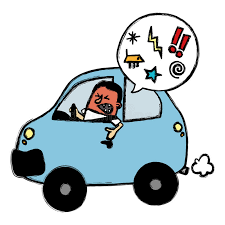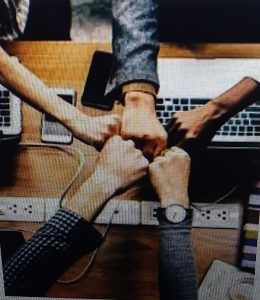There is something even more valuable to civilization than wisdom. And that is character. H.L. Mencken
 Between early spring and late fall, you will often find me riding my bike along the trails and roads around Northeast Ohio. And regardless of when, where, or with whom I’m riding, it’s not uncommon to encounter an angry motorist.
Between early spring and late fall, you will often find me riding my bike along the trails and roads around Northeast Ohio. And regardless of when, where, or with whom I’m riding, it’s not uncommon to encounter an angry motorist.
Sometimes they blast their horns, shake their heads, and give dirty looks as they speed by. Other times, they shout obscenities: “ This is not a f….ing bike trail,” a guy yelled over the July 4th weekend as he zoomed past four of us pedaling single file to a downtown destination.
Occasionally, they comment about our alleged political affiliations: “You crazy liberal bikers,” one driver screamed as he narrowly missed our small group on a two lane, rural road. For the record, we obey the street laws, are legally entitled to share the roads, are politically diverse, and never wear or display political paraphernalia.
Whether it’s NBA fans throwing water bottles at star athletes, airline passengers punching flight attendants, customers confronting employees about safety protocols, or motorists displaying road rage, you don’t have to look far to see people behaving badly.
The Problem
We’re more aggravated, irritated, and out of sorts after this past year; 2020 was a doozy. But even before the pandemic, bad behavior was on the rise. According to a 2018 Georgetown University study, in 1998, 49% of interviewed employees stated that they had been treated rudely by a colleague at least once a month. In 2018, 62% of employees were making that claim.
Social media, our fast-paced lifestyles, technology, and leadership are contributing to stress, underdeveloped communication skills, misunderstandings, and bad attitudes: entitlement, hostility, impatience.
What’s Next?
It’s time to prioritize soft skills.
Soft skills are interpersonal (people), communication, and listening skills, along with time management, problem solving, conflict management, team work, empathy, and more. Soft skills contribute to success both on and off the job.
People with good soft skills (Emotional Intelligence) can successfully navigate challenging work environments and people. Instead of getting mad and confronting or attacking others when dealing with change or the unexpected i.e., people biking through your neighborhood, airline restrictions, changes at your job– people who’ve developed their soft skills use respectful behaviors and constructive expression to achieve productive results.
Why It Matters
Costs
Incivility has consequences. In the workplace: 66%– cut back on performance, 80% –lost time worrying about what happened, 12% – left their jobs. And it’s costly: $14,000.00 per employee of lost time. Additionally, 25% of victims take frustrations out on customers.
Benefits
Soft skills create workplaces where employees can be and perform at their best. They contribute to job satisfaction, increased employee engagement, reduced stress, and an enhanced knowledge stream. They can also boost a company’s bottom line, and preserve its reputation.
Unfortunately, soft skills are not always easy: they require commitment, along with a willingness to be open, change, and grow. Plus, they take practice. So, while it’s true –sometimes soft skills can be hard. In the long run, boy are they worth it.